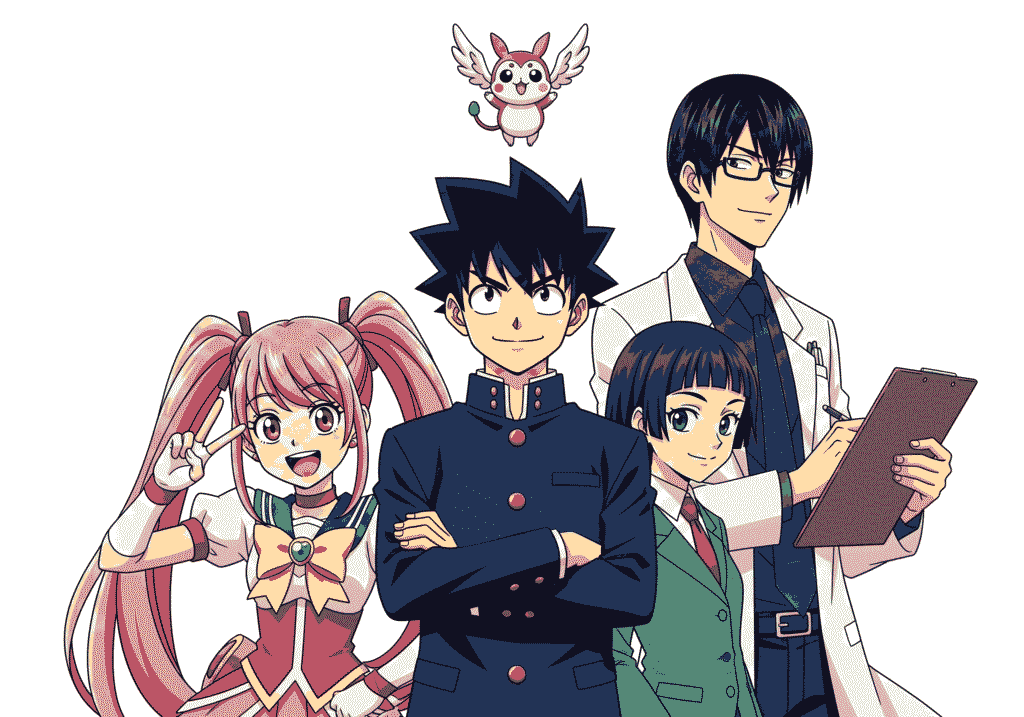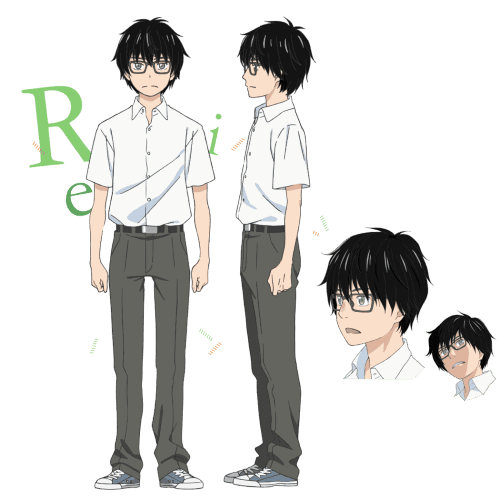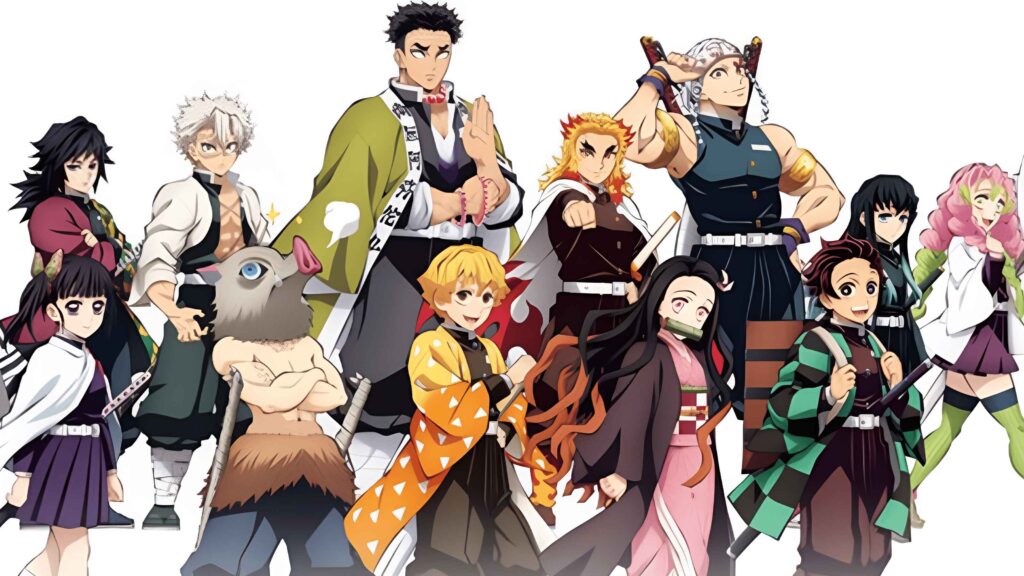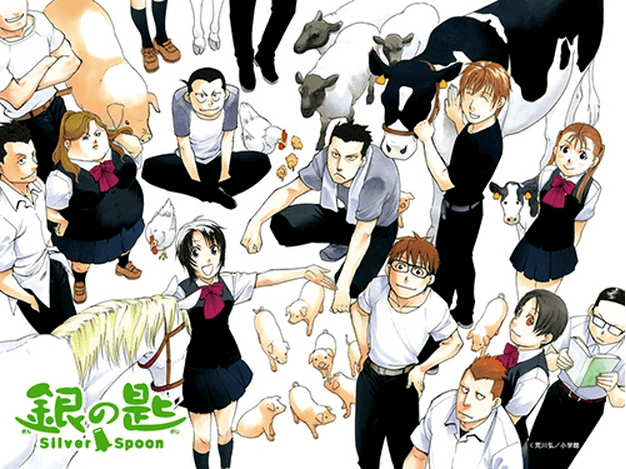What Anime Teaches Us About Saving Money and Simple Living – Discover powerful life lessons from anime on frugality, minimalism, and financial wisdom.
Learn how anime inspires simple living, smart saving habits, and true happiness beyond material possessions.
Anime is often seen as a form of entertainment—a window into fantastical worlds, larger-than-life heroes, and dramatic storylines.

But if you look closer, anime carries lessons far beyond battles and adventures. Many series subtly weave in values like discipline, mindfulness, frugality, and simple living.
These lessons aren’t just relevant to anime characters—they can transform how we approach our finances and lifestyle in the real world.
Anime, with its mix of striking visuals, unforgettable characters, and profound storytelling, often leaves behind lessons that go far beyond its fictional worlds.
While many fans turn to anime for entertainment, inspiration, or emotional catharsis, there is another layer of wisdom embedded within the narratives—one that speaks directly to our daily lives.
What Anime Teaches Us About Saving Money and Simple Living
From themes of frugality and self-discipline to the appreciation of small joys, anime has a lot to teach us about saving money and embracing simple living.

In today’s fast-paced consumer-driven world, where flashy gadgets, endless subscriptions, and impulse buys dominate lifestyles, taking a cue from anime’s subtle philosophy toward contentment and financial mindfulness can be refreshing—and even life-changing.
This article explores deep lessons found in anime that guide us towards financial wisdom, minimalism, and a purposeful way of living without reducing life’s richness.
Anime as a Mirror of Real Life Values
While anime often showcases over-the-top battles, fantasy realms, and supernatural powers, its strongest narratives tend to find their grounding in everyday life.
Something as simple as sharing a meal, repairing a torn school uniform, or saving pocket money for a much-wanted item reflects values of frugality, patience, and gratitude.

Unlike Western media that frequently glamorizes extravagance and luxury, Japanese anime tends to celebrate humble settings—small apartments, home-cooked meals, and simple joys—matching Japan’s own cultural emphasis on modesty and discipline.
Saving money and leading a simple life doesn’t mean deprivation—it means aligning values with purpose.
Anime visualizes this beautifully through characters who live simply yet fully, showing us that a mindful lifestyle is both possible and rewarding.
Lesson 1: The Beauty of Living with Less
When we think of anime worlds, we often imagine futuristic cities, magical kingdoms, or battlefields. But some of the most powerful lessons come from simple settings—humble homes, quiet villages, and small apartments.
Take My Neighbor Totoro, for example. The family moves into an old countryside house that creaks and leaks, yet it becomes the setting for joy, love, and magical experiences.

Their happiness isn’t tied to the grandeur of their home but to their ability to cherish life’s little wonders.
In Clannad, Tomoya and Nagisa’s lives are marked by financial struggles, yet they find strength and happiness in love, family, and shared dreams.
Their modest home is filled with warmth and meaning, showing us that joy doesn’t come from luxury but from togetherness.
Real-Life Takeaway:
- Living with less allows us to focus on what truly matters—relationships, health, and experiences.
- Decluttering possessions reduces stress and saves money.
- Simple living doesn’t mean deprivation; it means clarity and balance.
The Japanese philosophy of wabi-sabi, often reflected in anime, celebrates imperfection and simplicity. It’s a reminder that life doesn’t have to be perfect—or filled with material abundance—to be beautiful.
Lesson 2: Hard Work and Saving for the Future
Anime characters often embody resilience, discipline, and persistence—qualities that are crucial when it comes to financial stability.
In March Comes in Like a Lion, Rei, a young shogi professional, lives a frugal life. He carefully manages his modest income, making sacrifices to ensure his future.

His journey reminds us that consistent effort and careful money management are more valuable than short-term indulgence.
Similarly, in Naruto, Iruka Sensei, though not wealthy, dedicates himself to teaching and supporting others. His modest lifestyle reflects a commitment to values over material possessions.
Real-Life Takeaway:
- Saving money is a long-term process—it requires patience and discipline.
- Even small, consistent savings build security over time.
- Hard work and frugality create opportunities for future growth.
This lesson aligns with the financial principle of compound growth: just like Rei’s steady efforts in shogi, small, consistent savings grow into something powerful over time.
Lesson 3: Value Experiences Over Possessions
When you watch slice-of-life anime like Barakamon, Your Name (Kimi no Na wa), or Anohana: The Flower We Saw That Day, one theme becomes clear: the most meaningful parts of life aren’t material possessions but shared experiences.

In Your Name, Mitsuha and Taki’s most precious memories aren’t tied to wealth or possessions but to fleeting moments, emotions, and connections. These experiences shape their lives in ways no physical object could.
Barakamon beautifully captures how Seishuu Handa, a calligrapher, discovers fulfillment in a rural community by cherishing everyday experiences—helping children, celebrating festivals, and finding inspiration in simplicity.
Real-Life Takeaway:
- Prioritize spending on experiences like travel, hobbies, and time with loved ones rather than material possessions.
- Experiences create memories that last far longer than material items.
- When budgeting, allocate money toward activities that enrich your life instead of buying items that gather dust.
Lesson 4: The Danger of Excess and Greed
Anime often warns us about the consequences of unchecked desire and excess.
In Fullmetal Alchemist: Brotherhood, Greed—the embodiment of endless desire—serves as a literal metaphor for how greed can consume and destroy. His downfall shows that chasing more, without contentment, leads to emptiness.

In Death Note, Light Yagami’s hunger for control and power starts with a noble cause but spirals into corruption. Though his obsession isn’t with money, the message is clear: unchecked ambition and greed can ruin lives.
Real-Life Takeaway:
- Avoid consumer debt caused by overspending on unnecessary luxuries.
- Recognize that “more” doesn’t equal happiness.
- Practice gratitude for what you already own.
In financial terms, this lesson translates into avoiding lifestyle inflation—the tendency to increase spending as income grows. True financial freedom comes from controlling desires, not endlessly chasing them.
Lesson 5: Community Sharing and Collective Living
Anime like One Piece, Fairy Tail, and My Hero Academia highlight the power of community. Characters survive and thrive because they share resources, rely on one another, and put collective well-being above individual gain.

This mirrors the Japanese concept of kyōzon—living together in harmony. Communities that share resources reduce individual burdens and increase happiness.
Real-Life Takeaway:
- Share resources with family and friends (e.g., shared subscriptions, carpooling).
- Engage in community-based activities like group gardening or skill exchanges.
- Financial challenges become easier when communities work together.
Lesson 6: The Humble Bento Box – A Symbol of Frugality
Few anime symbols capture frugality better than the bento box. From Food Wars! with its extravagant bentos to the simple, heartfelt lunches in K-On!, bentos represent mindful eating, preparation, and care.

Bento culture reflects three financial principles:
- Homemade is cheaper than store-bought.
- Portion control prevents waste.
- Time invested saves money in the long run.
Real-Life Takeaway:
- Cook at home to save money.
- Meal-prep to avoid expensive takeout.
- Enjoy the process of making and sharing food with loved ones.
Lesson 7: Financial Responsibility in Slice-of-Life Stories
In Shirobako and Bakuman, young adults struggle to achieve their dreams while dealing with financial realities like paying rent, managing limited incomes, and budgeting carefully.

These anime highlight the importance of financial responsibility in pursuing long-term goals. The characters don’t achieve success overnight—they balance frugality, patience, and discipline.
Real-Life Takeaway:
- Differentiate between wants and needs.
- Keep a budget and stick to it.
- Understand that financial growth is gradual and requires sacrifice.
Lesson 8: Simplicity Leads to Inner Peace
Some of the most meditative anime, like Mushishi or Natsume’s Book of Friends, show us that simplicity leads to clarity and peace.

Ginkgo, the wandering protagonist of Mushishi, carries little more than his knowledge and curiosity, yet he lives a life full of purpose.
Excess possessions often lead to clutter and anxiety. Simplicity, on the other hand, frees our minds and allows us to focus on what matters.
Real-Life Takeaway:
- Declutter your home regularly—donate or sell unused items.
- Own fewer things but choose items that truly add value.
- Simplicity reduces stress and promotes peace of mind.
Lesson 9: Resilience Through Frugality
Anime heroes often survive and grow stronger by making the best use of limited resources.
In Dragon Ball Z, Goku’s training is often resourceful and simple—he grows stronger through discipline, not luxury.

In Demon Slayer, Tanjiro shoulders the burden of supporting his family through hard work, resilience, and frugality.
These characters remind us that resilience, not luxury, builds true strength.
Real-Life Takeaway:
- Treat frugality as a strength, not a weakness.
- Use financial hardships as opportunities to build resilience.
- Learn to do more with less.
Lesson 10: Finding Joy in the Everyday
Slice-of-life anime like Non Non Biyori and Silver Spoon teach us to slow down and appreciate ordinary life.

Simple routines, laughter, and shared meals bring more satisfaction than constant chasing of material success.
Real-Life Takeaway:
- Practice gratitude daily for small joys.
- Wealth is measured not only in money but also in time, health, and peace of mind.
- Learn to see happiness in the little things.
Practical Anime-Inspired Tips for Saving Money and Simple Living
- Adopt the Bento Principle: Cook meals at home instead of eating out.
- Budget Like a Slice-of-Life Character: Track every expense and set limits.
- Live Modestly Like Totoro’s Family: Choose affordable housing and avoid unnecessary luxuries.
- Spend on Experiences, Not Things: Go on adventures, travel, and spend time with loved ones.
- Practice Gratitude: Celebrate what you have before seeking more.
- Be Resourceful Like Tanjiro: Repair, recycle, and reuse items.
- Stay Resilient: Treat tough financial times as opportunities for growth.
Why Anime’s Lessons Matter Today
In a consumer-driven age, where advertisements constantly push us to buy more, anime reminds us that joy comes from simplicity, gratitude, and community. By internalizing these lessons, we free ourselves from the cycle of debt, stress, and comparison.
Instead, we gain something far greater: financial peace, personal freedom, and a meaningful life.
Anime as More Than Entertainment
For many fans, anime is a form of escape. We lose ourselves in the worlds of Naruto, One Piece, Attack on Titan, or Your Name.
But anime is also a mirror of life. Japanese culture, with its long-standing traditions of minimalism, mindfulness, and community, often seeps into anime narratives.

Characters who live in small apartments, prepare home-cooked meals, or work tirelessly to support loved ones reflect real human struggles.
Anime, therefore, isn’t just entertainment—it’s a philosophical guidebook wrapped in artistry. If we observe, anime becomes our financial sensei, teaching us how to manage money, embrace frugality, and find contentment in simplicity.
Conclusion: Living Simply, the Anime Way
Anime’s greatest strength is its ability to touch hearts with universal truths. Among those truths is the lesson that happiness does not come from constant consumption but from gratitude, meaningful effort, and awareness of life’s simple gifts.
Characters who thrive on modest means or who overcome limitations by valuing relationships and persistence leave us with timeless financial wisdom.
For anyone seeking balance in a materialistic world, anime offers gentle, story-driven encouragement to slow down, save, and live a simpler life.
In the end, the anime way of living frugally isn’t about sacrifice—it’s about finding freedom in simplicity, joy in small moments, and fulfillment in the journey itself.
Other Interesting Posts To Read:
10 Financial Lessons You Can Learn from Anime Characters
Why Solo Leveling Is the Ultimate Power Fantasy Anime?
How Watching Anime Can Improve Emotional Intelligence
7 Health Tips from Anime Teachers You Shouldn’t Ignore
Top 10 Anime Characters Who Promote Self-Care



[…] What Anime Teaches Us About Saving Money and Simple Living […]
[…] What Anime Teaches Us About Saving Money and Simple Living […]
[…] What Anime Teaches Us About Saving Money and Simple Living […]